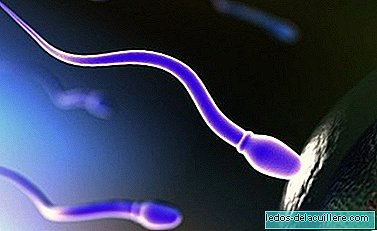
Men produce million sperm Every day, everyone is prepared for a great race towards fertilization. It may be surprising to think that so many gametes are spent for a single egg that will receive them, but this huge production is necessary to ensure that at least one of them exceeds the barriers of the dangerous race that awaits them.
More of 200 million sperm are the average in each ejaculation. They will have to survive the acid in the vagina, pass the cervix, trick the white blood cells that attack any invader of the body, trace the dangerous and narrow path of the fallopian tubes and in the end, reach the ovule so that the first can enter the barrier until it enters into it to give rise to a new being.
The sperm are born in the testicles and move slowly for days through the epididymal ducts and the vas deferens.
The sperm are expelled in the seminal fluid. It is a viscous, whitish or slightly yellowish, sometimes lumpy, liquid that occurs mainly in the seminal vesicles (up to 80%) and in the prostate (between 13 and 33%). It contains proteins, fructose, favins, citric acid and phosphatases.
The average semen volume of an ejaculation is 1.5 to 5 milliliters, with a maximum of 15 milliliters and is produced from 12 or 14 years throughout life although its quantity decreases with age.
Under proper conditions the sperm they survive several days outside the body, they can even be alive after death and live several days inside the tubes after intercourse. They also maintain their freezing fertilizing capacity, which allows them to be preserved for artificial fertilization.
Sperm count It is a guarantee for successful fertilization, so taking care of its quality, waning in industrialized countries, is important. A balanced diet, less exposure to chemicals, abstinence from alcohol, drugs and tobacco, the rational use of laptops, good hygiene and clothes that do not overtighten are basic tips to prevent poor sperm quality.












